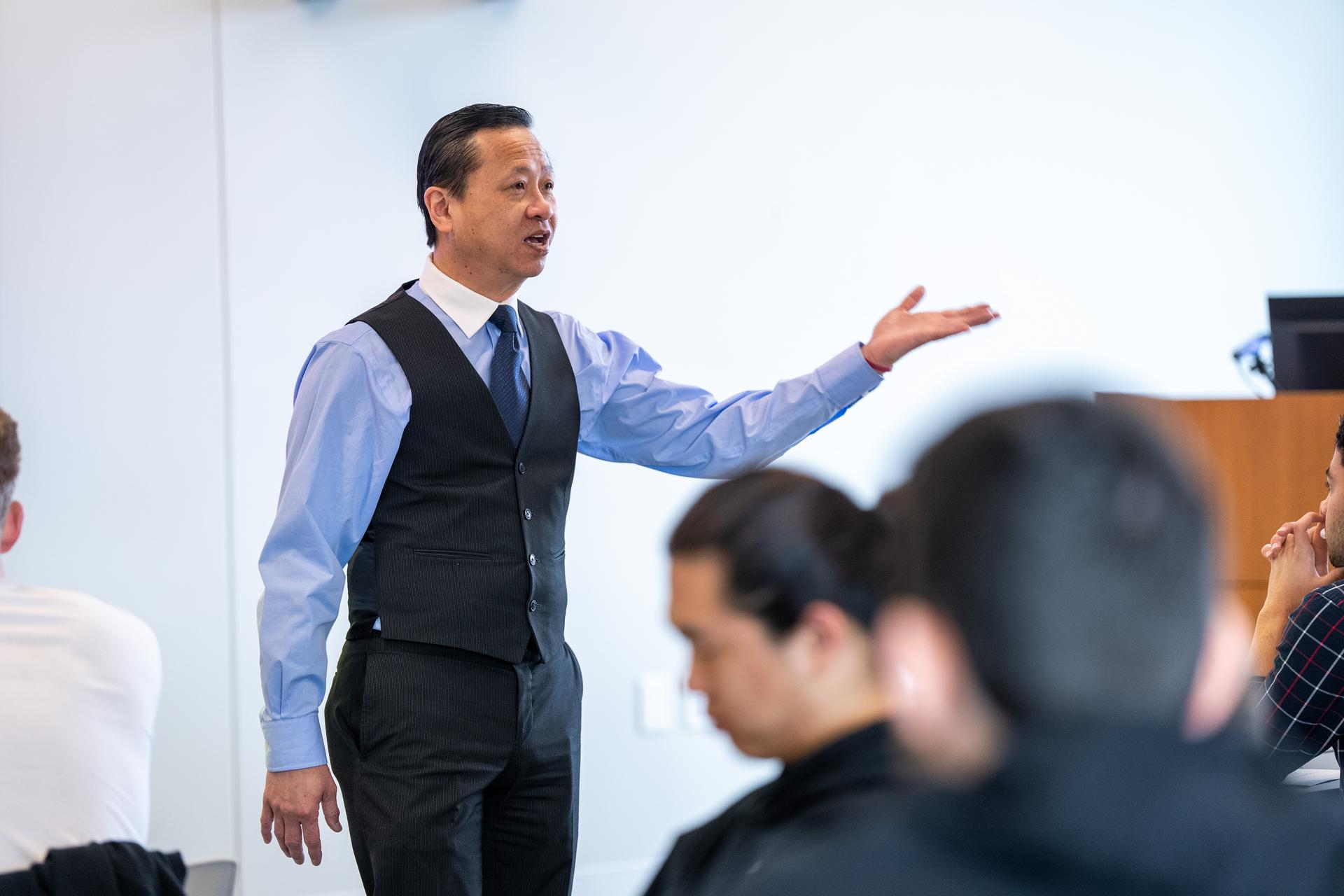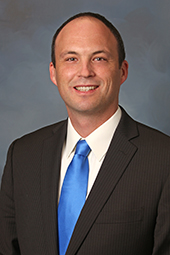
Andrew Meyer
 Andrew MeyerMarquette University
Andrew MeyerMarquette UniversityO'Brien Hall, 405B
MilwaukeeWI53201United States of America(414) 288-5489andrew.g.meyer@marquette.eduPersonal WebsiteCurriculum VitaeChair, Department of Economics
Professor of Economics
Dr. Meyer joined Marquette University in 2014. He received his Ph.D. and MA in economics from the University of Colorado at Boulder, and he received his BA in international management from Gustavus Adolphus College. Prior to joining Marquette, Dr. Meyer worked as an assistant professor at Ohio Wesleyan University.
Dr. Meyer’s research interests include environmental and natural resource economics, behavioral economics, and education economics. His recent research focuses on agricultural and nonpoint source water pollution policies and how political leaders influence climate change beliefs, media coverage, and implementation of the Clean Air Act.
Education
- Ph.D. – Economics, University of Colorado at Boulder, 2009
- MA – Economics, University of Colorado at Boulder, 2006
- BA – International Management, Gustavus Adolphus College, 2003
Professional Interests
- Environmental economics
- Behavioral economics
- Economics of education
- Energy economics
Selected Publications
"The Effect of Water Pollution Regulation on Prices: Evidence from Wisconsin's Phosphorus Rule and Sewer Utility Bills," (with Z. Raff), Journal of Environmental Economics and Management, 2024, 124: article 102914.
“Political Differences in Air Pollution Abatement under the Clean Air Act,” (with Z. Raff and J. Walter), Journal of Public Economics, 2022, 212: article 104688.
“CAFOs and Surface Water Quality: Evidence from Wisconsin,” (with Z. Raff), American Journal of Agricultural Economics, 2022, 104(1): 161-189.
“Do Economic Conditions Affect Climate Change Beliefs and Support for Climate Action? Evidence from the US in the Wake of the Great Recession,” Economic Inquiry, 2022, 60(1): 64-86.
“Elite Influence on Climate Change Skepticism: Evidence from Close Gubernatorial Elections,” Journal of the Association of Environmental and Resource Economists, 2019, 6(4): 783-822.
“Perceptions of Institutional Quality: Evidence of Limited Attention to Higher Education Rankings,” (with A. Hanson and D. Hickman), Journal of Economic Behavior and Organization, 2017, 142: 241-258.
“The Impact of Education on Political Ideology: Evidence from European Compulsory Education Reforms,” Economics of Education Review, 2017, 56: 9-23.
“Estimating Discount Factors for Public and Private Goods and Testing Competing Discounting Hypotheses,” Journal of Risk and Uncertainty, 2013, 46(2): 133-173.
